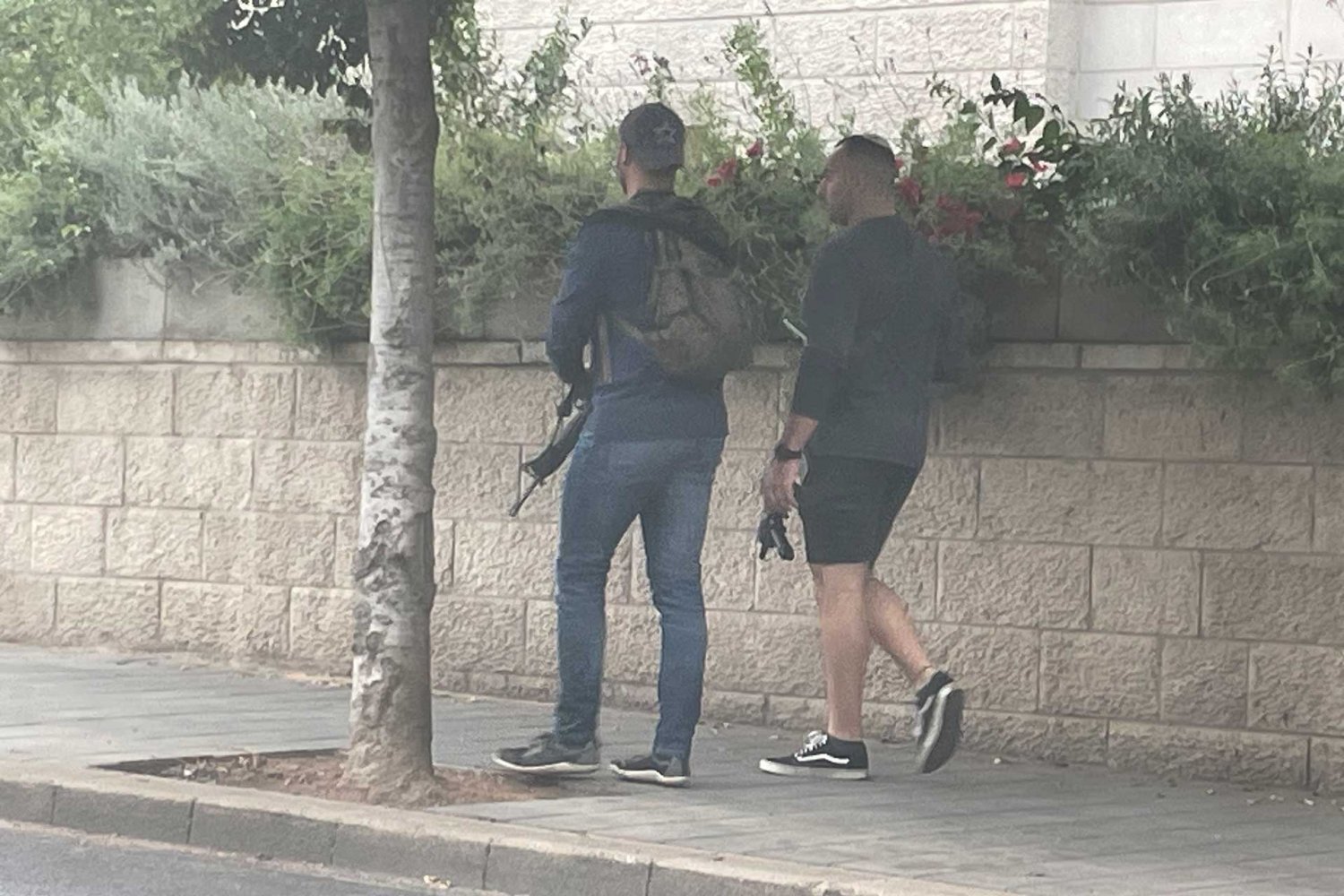The Israeli government declared “Operation Swords of Iron” on Gaza on October 7, and all inhabitants have been on edge ever since. The entire country has been in war mode. There has been an eerie silence in the empty streets where businesses remain shuttered. Masses of Israelis were drafted to the military, and the entire government geared up to “fight Hamas.” The war is ongoing in Gaza, where the entire civilian infrastructure was hit and more than 10,000 noncombatants have been killed in a month. This excludes those still under the rubble.
In Jerusalem, too, Palestinians feel that they live in a combat zone. Almost every corner of the city has clusters of heavily armed Israeli police ready to check residents, which generally means identifiably Arab residents. The rules have been changed: now Israeli authorities can inspect personal belongings and arrest or seize individuals’ property during the “emergency state of war.”1 The use of social media that may be interpreted as sympathetic with or supportive of Palestinians in Gaza can trigger criminal charges, on the pretext that people expressing such sentiments disrupt the “national morale.”2
The streets of Jerusalem have been filled with an overwhelming military presence. Not only have the heavily armed police officers and military forces tripled in number and the police vehicles increased, but Jewish Israeli civilians, too, have been granted weapons. Already on October 10, Israeli National Security Minister Itamar Ben-Gvir announced that his ministry purchased 10,000 rifles to be distributed to Israeli civilians—particularly those living near Arabs.3 This was in addition to countless weapons distributed to settlers in hundreds of towns. Jewish Israeli civilians are now massively armed.4
To be a Palestinian in Jerusalem is to be surrounded by hordes of heavily armed settlers and even nonsettler Israeli citizens. It has become common to see people carrying a coffee cup or perhaps even a yoga mat with one hand and a loaded rifle on the other. Common, but still highly bizarre and super frightening—so much so that most Palestinians are too scared to leave their homes: They know that they are the potential targets in this type of setting. If by any chance they are to make what an Israeli considers a suspicious move, speak Arabic, or perhaps even make eye contact with an armed Israeli, their lives might be in serious danger.




